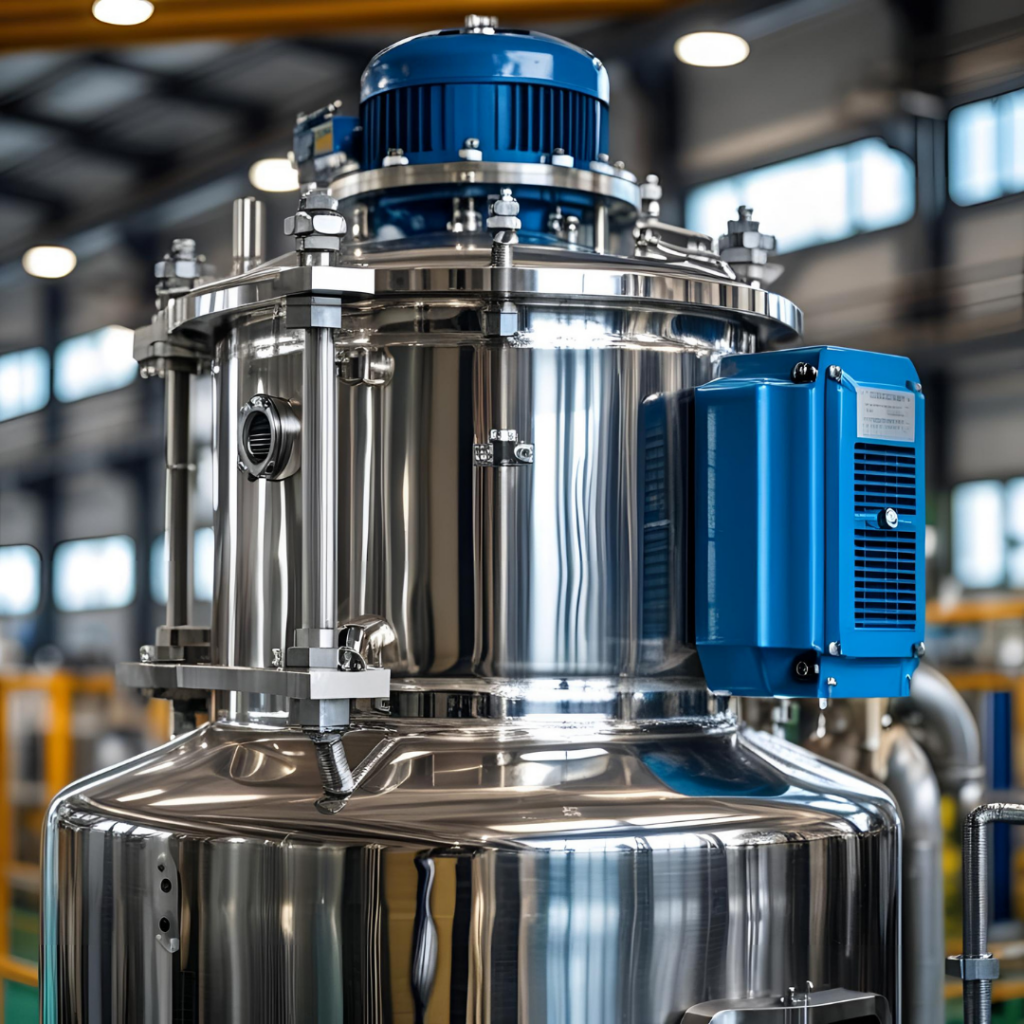What is Stainless Reactor Manufacturing?
Stainless reactors are specially designed equipment, generally used in industrial facilities, where chemical reactions take place in a controlled manner. These reactors are manufactured from stainless steel due to their resistance to high temperature, pressure, and corrosion. The manufacturing process requires technical knowledge, precision engineering, and experience.
Reactor Definition and General Application Areas
Reactors are systems where one or more substances undergo physical or chemical reactions. They are indispensable in the chemical, food, pharmaceutical, cosmetic, and biotechnology sectors. In these systems, many processes such as heating, cooling, and mixing are performed simultaneously.
Reasons for Preferring Stainless Material
Stainless steel is the most preferred material in reactor manufacturing due to its durability, hygienic structure, and long life. In addition, the corrosion resistance, low maintenance cost, and aesthetic appearance of stainless steel offer significant advantages.
Classification of Stainless Reactors
Single-Jacketed and Double-Jacketed Reactors
Single-jacketed reactors are sufficient for simple applications. However, double-jacketed models are preferred in processes where temperature control is important. Thanks to the double jacket, a heat transfer fluid can be supplied into it.
Reactors with Agitators
Agitators are of critical importance for ensuring a homogeneous mixture and increasing reaction efficiency. Motor power and impeller type are determined according to the nature of the process.
Heated and Cooled Reactors
For some chemical reactions, the temperature needs to be controlled. In this case, heating/cooling systems integrated into the reactor jacket come into play.
Stainless Reactor Manufacturing Process
Engineering Design and Project Planning
The manufacturing process begins with detailed engineering studies. The appropriate capacity, pressure values, and design features are determined according to the need.
Material Selection
Generally, AISI 304 or 316 grade stainless steel is used. In corrosive environments, 316L grade steel is preferred.
Use of CAD/CAM Software
During the design phase, all details are planned in advance with 3D modeling software. This minimizes the risk of errors during production.
Production Process Stages
Laser Cutting and Bending
The materials are cut with high precision and bent into the desired shape.
Welding and Assembly Process
The parts are joined using TIG/MIG welding technologies. Hygienic welding applications are very important in terms of surface smoothness.
Surface Treatments and Cleaning
Pickling and Passivation
Welding residues and oxide layers on the surface are cleaned with acid, and resistance to corrosion is increased.
Quality Control and Testing Processes
Leakage Tests
The safety of the reactor is ensured with tests conducted against liquid and gas leaks.
Pressure Tests and Safety Checks
After manufacturing, the reactor is tested at the specified pressure values. These tests guarantee that the product is safe and long-lasting.
Stainless Reactor Manufacturing with Asinoks Quality
Asinoks’s Experience and References in Manufacturing
With years of experience, Asinoks offers special reactor solutions to industrial companies all over Turkey. It makes a difference with quality, customer satisfaction, and engineering principles.
Custom Designs for Users
Every sector is different; Asinoks also offers a special solution for each project. We design a custom reactor suitable for your needs.
Compliance with International Standards
Thanks to production in compliance with ASME, CE, and ISO standards, safe and certified products are delivered.
Sectoral Application Areas
Chemical Industry
Stainless reactors are ideal for mixing aggressive substances such as acids, bases, and solvents.
Food and Beverage Industry
In this sector where hygiene is a priority, stainless reactors are used in the production of products such as milk, fruit juice, and sugar syrup.
Pharmaceutical and Cosmetic Production
In these areas requiring a sterile environment, stainlessness and hygienic design are of great importance.
Maintenance and Durability in Stainless Reactors
Corrosion Resistance
Stainless steel shows high resistance to chemical substances. This extends the life of the device.
Ease of Cleaning and Hygiene
Thanks to its smooth surface structure, it is easy to clean and bacterial growth is prevented.
What to Consider When Choosing a Reactor?
Capacity and Pressure Values
The process volume and the working pressure level must be chosen correctly.
Agitator Type and Motor Power
The density of the mixture and the processing time affect these parameters.
Certifications and Documents
Products with ASME, CE, ISO documents are always a reason for preference.
Sustainability and Environmental Awareness
Use of Recyclable Material
Stainless steel is a 100% recyclable material.
Designs that Provide Energy Efficiency
Insulated bodies and efficient agitators reduce energy consumption.
Costing Process
Factors Affecting the Price
Capacity, jacket structure, motor power, and additional equipment affect the cost.
Long-Term Economic Advantages
The total cost decreases thanks to low maintenance costs and long life.
Common Mistakes and Things to Consider
Use of Cheap and Non-Standard Materials
Although the initial investment is low, it leads to serious problems in the future.
Unsupervised Production Processes
Uncertified and uncontrolled products pose a great risk in terms of operational safety.
Contact Asinoks
As Asinoks, we are pleased to design reactors specific to your every need. Contact us, and let’s create the most suitable solution for you together.
Conclusion
Stainless reactor manufacturing is a process that requires advanced engineering and high quality. Asinoks offers reliable solutions on both a local and global scale. Trust Asinoks’s experience for durable, hygienic, and economical reactors.
Frequently Asked Questions (FAQ)
- What is a stainless reactor and what is it used for?
Stainless reactors are used to carry out chemical reactions safely and in a controlled manner. - Which grades of stainless steel are used?
Generally, AISI 304, 316, and 316L grade stainless steels are preferred. - Do Asinoks reactors have international certifications?
Yes, they have international quality certificates such as CE, ISO, and ASME. - What is the lifespan of stainless reactors?
Depending on use and maintenance, they have a service life of 20 years or more. - How are reactor prices determined?
Technical specifications such as capacity, jacket structure, and motor power determine the price.


